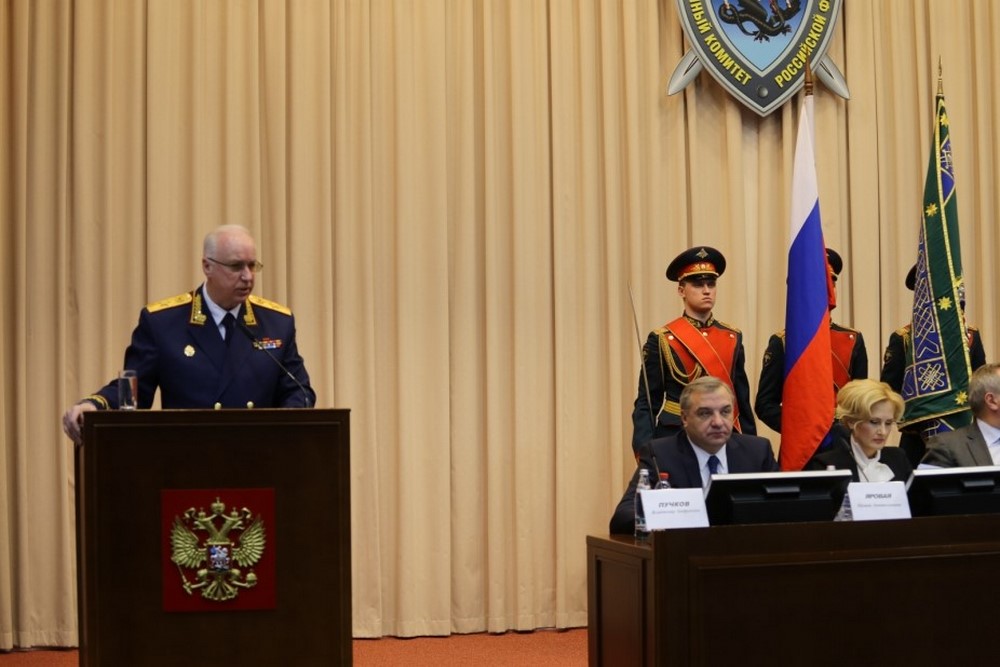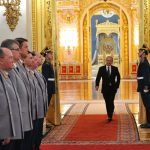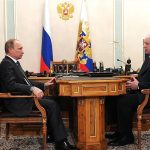ROMANIA MONITOR
Date: 20 February 2018
Bastrykin’s Lonely End. Russian presidential election
An annual expanded meeting of the Russian Prosecutor General’s Office Board took place on February 15. On February 6, a similar convention took place within the structures of the Investigative Committee. Nevertheless, both events seem to differ in a significant way. Russia’s president took part in the first one where he gave a speech. The second one was attended only by Russia’s deputy prime minister, though. One conclusion can be drawn: the days of the Investigative Committee are numbered, which has been already predicted by the Warsaw Institute.

We have recently described the problems of the head of the Investigative Committee Alexander Bastrykin in January (here and here) caused mostly due to the case of thief in law Shakro Molodoy (corruption scandal at the highest levels of Russia’s Investigative Committee). The fact that the institution governed by Bastrykin had fallen into deep disgrace has been confirmed by the list of guests who arrived to an annual expanded meeting of the Investigative Committee’s Board on February 6. No representative of the Kremlin, the government nor the parliament attended the meeting. The presidential administration was represented only by the Presidential Plenipotentiary Envoy to the Northwestern Federal District Alexander Beglov. The State Duma’s delegate was its deputy chairman, Irina Yarovaya, whereas the government was represented by deputy prime minister Dmitry Rogozin. As for the Prosecutor General’s Office, its representative was Viktor Grin, Deputy Prosecutor General. Such a state of affairs is in stark contrast to previous years. In 2015, Putin met with Bastrykin right after the meeting. In 2016, the event was attended by the Chief of Staff of the Presidential Administration Sergei Ivanov. In 2017, the meeting hosted chiefs of two important subdivisions of the presidential administration: control and anti-corruption directorates.
The Investigate Committee will probably be liquidated right after the presidential election as a part of a wider and deeper reorganisation of the power structures. One of the options, which are currently being discussed, involves creating the Russian counterpart of the FBI, referred as the Federal Investigation Service. It would incorporate the Investigative Committee as well as all investigative structures of other services, including the FSB Investigation Directorate and the MVD (Russia’s Ministry of Interior) Department of Investigation. However, it seems that such an option is not advocated by the Lubyanka, which would prefer a completely different scenario; instead, it would opt for establishing the so-called MGB (Ministry of State Security), who would bring together the current FSB, SVR (Foreign Intelligence Service of the Russian Federation) and FSO (Federal Protective Service) and FSB as a dominant service. The new institution would also dispose of all investigative powers. The FSB has already used the above-mentioned competences, excluding the Investigative Committee. In December 2017, Senator Alexey Alexandrov introduced a bill that would provide the Prosecutor General and his deputies with the right to transfer to the FSB any materials or cases disclosed by the service. However, there is the Prosecutor General’s Office and Putin will probably not risk to concentrate most operational and investigative competences in one place, namely in Lubyanka Square. President’s presence at the expanded meeting of the Russian Prosecutor General’s Office Board may suggest that the Investigative Committee is very likely to become again a part of the Prosecutor’s General Office (both institutions were separated one from another in 2011).
_________________________________
All texts published by the Warsaw Institute Foundation may be disseminated on the condition that their origin is credited. Images may not be used without permission.















